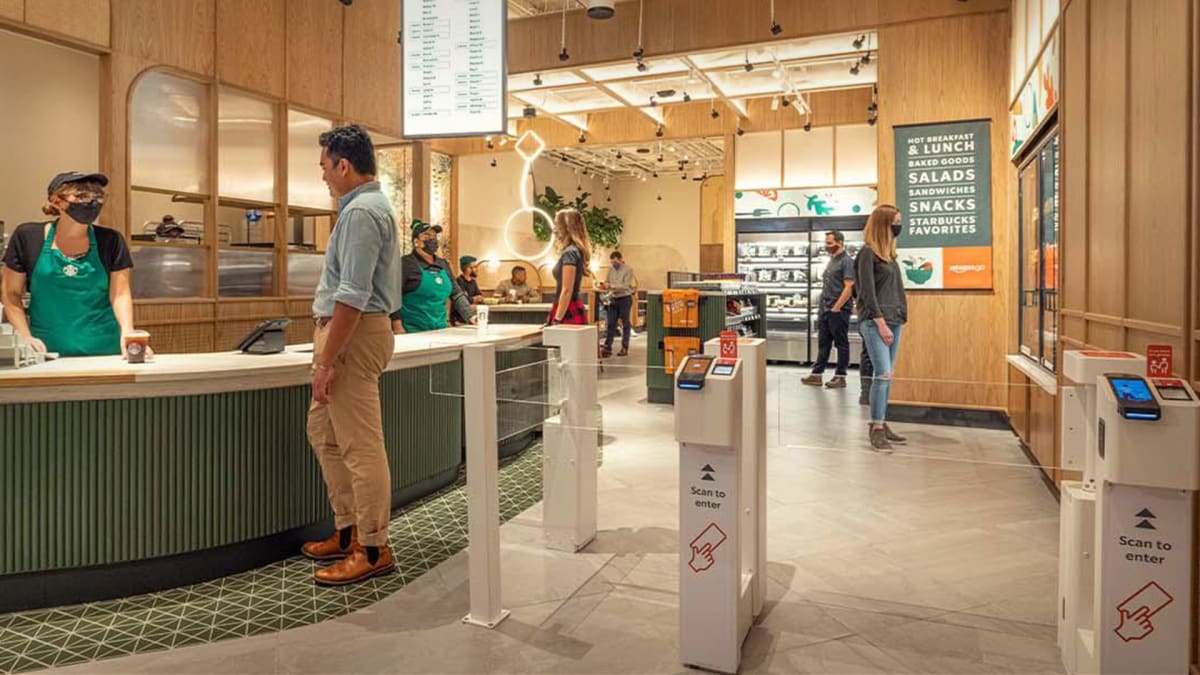
Food recalls have hit several big companies in the past dozen or so years. Cargill Meat Solutions Corp. recalled 35 million pounds of ground turkey in 2011, Wright County and Hillandale Egg Farms recalled over a half-billion eggs back in 2010, and General Mills GIS recalled millions of pounds of flour in 2016.
Food and drink product recalls are issued and monitored by the Food and Drug Administration and the FDA and Centers for Disease Control and Prevention will investigate if a food product is suspected in causing a food poisoning outbreak. However, food producers and restaurants will often issue voluntary recalls if they suspect a product has been contaminated.
Starbucks (SBUX) is currently part of another voluntary recall, as the global coffee company was also in a voluntary recall back in 2021 when it recalled Starbucks Doubleshot Espresso drinks. The 250,000 cases of Doubleshot Espressos recalled were sold nationwide, since they could contain a foreign object that could cause premature spoiling of the drinks, according to Starbucks.
Another voluntary recall with Starbucks premade coffee drinks was in 2022 for 200+ cases of the 15-ounce Starbucks Vanilla Espresso Tripple Shot drinks. The recall only effected drinks that were sold in Arizona, Arkansas, Florida, Illinois, Indiana, Oklahoma and Texas. The products were identified by having a best by date of March 20, 2023. The recall was issued due to the possibility of a foreign object (metal fragments) that could be in the bottles, also a Class level II FDA recall.
Companies may either have a voluntary recall or a mandatory recall. The voluntary recall happens when the company itself issues the recall in an effort to protect the public health and well-being from the recalled product or effects thereof. The majority of recalls fall under the category of a voluntary recall, this is because most companies will work in an effort to reduce the risks of liability and what is best for consumers. The mandatory recall is issued if the company has failed its due diligence to the public and the agency must step in to issue the mandatory recall, according to the FDA’s website.
Starbucks has 300,000+ Drinks Recalled
PepsiCo (PEP) , which bottles Starbucks premade drinks, has issued a recall for the Starbucks Vanilla Frappuccino coffee drinks because of a possibility for a foreign object, identified as glass, in the beverage, according to the FDA's website. The Starbucks products consist of 12 packs of ready-to-drink coffee drinks.
While these drinks are sold nationwide, they are not sold at Starbucks locations. Other retailers that sell the premade coffee drinks may include Walmart (WMT) and Target (TGT) among others. The bottles can be identified with the UPC code 0 12000-81331 3. The bottles are 13.7 ounce Starbucks Frappuccino Chilled Coffee Drink, and they have expiration dates of March 8, 2023, May 29, 2023, June 4, 2023 and June 10, 2023. The products can be returned to the retailer they were purchased from or consumers can call 1-800-211-8307.
The recall is a Class Level II, which means that the recalled product could result in adverse health consequences, although the chances of serious health consequences are remote, the recall should be considered seriously. The class levels are based on the level of risk to the public. A Class Level I recall has the lowest risk, Class Level II has moderate risk and Class Level III has the highest level of risk to the consumer.
Starbucks Non-Recall Not Forgotten
In 2022, Starbucks made a failed attempt to join in the chicken sandwich wars. However, the coffee company’s efforts were almost immediately halted. The coffee company was attempting to grow its sales by expanding its food offerings. It introduced a Chicken, Maple Butter and Egg Sandwich. The sandwiches were out for only a few days before the company pulled them from the menu. Customers and employees who had eaten the Chicken, Maple Butter and Egg Sandwiches had started to experience symptoms common with food poisoning.
While the Chicken, Maple Butter and Egg Sandwiches were not part of a recall, the company stated that the issue was in a quality control issue. While it wasn't clear what that meant, it could mean that the staff wasn't properly trained on how to prepare and or store the ingredients used to make the sandwich causing them make consumers ill or have food poisoning like symptoms. The company did its due diligence by having all sandwiches pulled and not selling them until the issues with the quality could be resolved.
Most recalls happen voluntarily when the company works to notify consumers that there may be an issue with the product.







